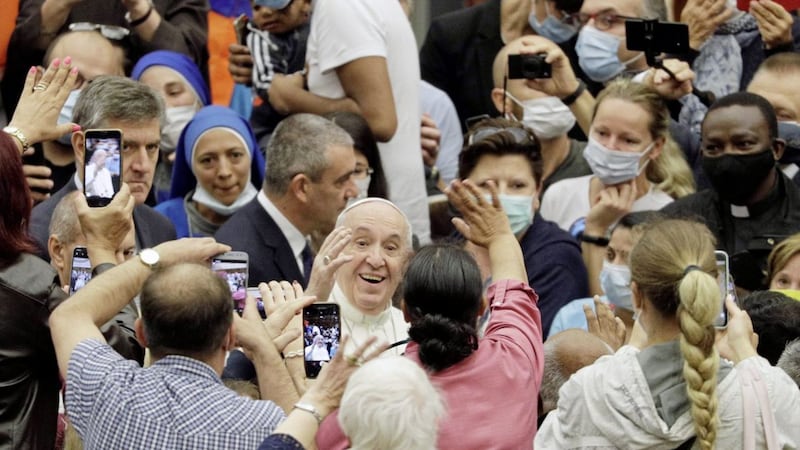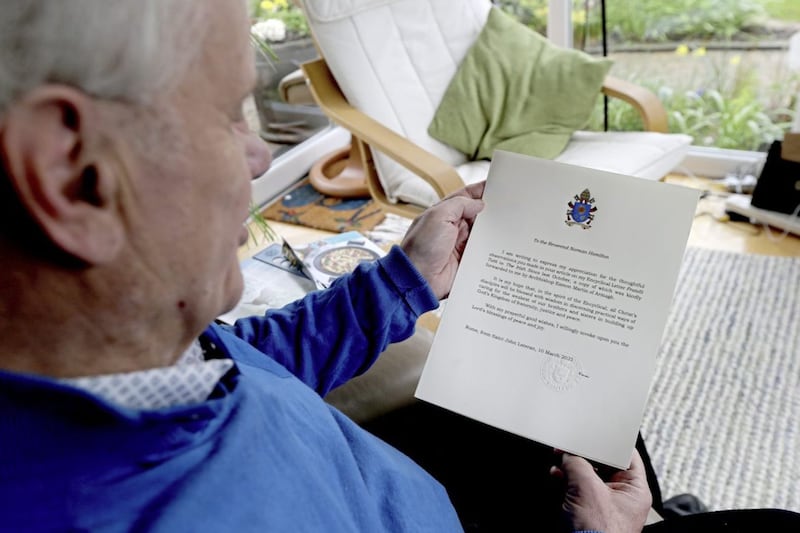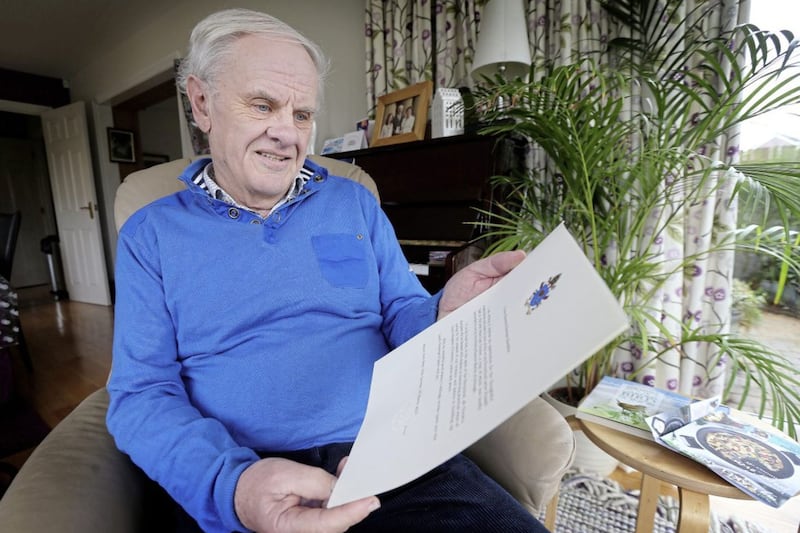THIS timely and provocative message from Pope Francis reminds us so powerfully of the message of love that is at the heart of the Gospel - a love which reaches out to all of our 'brothers and sisters' who share our common humanity.
I am conscious that Pope Francis wrote this encyclical during a global pandemic, a time which is reminding us not only of our connectedness around the world but also of our fragility, our shared vulnerability and common need for compassion and love and for the hope that faith in God can bring.
Pope Francis has a real gift for opening up and reflecting on the Word of God - he loves to select a passage from Scripture and 'meditate out loud' on what God's Word is saying to us.
This time he chooses the challenging Parable of the Good Samaritan and he slowly 'breaks open' the wisdom and teaching of that Parable for today.
Yes, we might agree, we are all 'brothers and sisters'; we are all neighbours sharing this planet. But, 'Who is my neighbour? Who is my brother? Who is my sister?'
Pope Francis reminds us of how his namesake, Saint Francis, answered this question.
He "heard the voice of God, he heard the voice of the poor, he heard the voice of the infirm and he heard the voice of nature. He made of them a way of life."
In Fratelli Tutti Pope Francis therefore makes a special appeal in the name of justice and mercy for the orphan, the poor, the stranger, the migrant, the refugee and all those on the 'margins', the 'peripheries' of life and society.
He envisages an 'open world' motivated by what he calls 'social friendship' and sincere hospitality towards others.
I find it particularly challenging when he mentions that, "Some peripheries are close to us, in the city centres or in our families."
This of course reminds us here in Ireland to consider who might be left out, who do we tend to shuffle over into the margins of society and perhaps try to forget?
Perhaps the real social distancing is the way that the great majority of people in the world can get on with their lives seemingly oblivious or 'anaesthetised' to the tremendous suffering, inequality and neglect of the poor and the most vulnerable among us
I sometimes wonder about the impact on us of seeing a homeless person lying on our streets, or watching live pictures on the media of thousands of refugees huddled in camps, or starving children swatting away flies from their faces - how easily we can 'shift our gaze', feel sorry for them but never really question our own values, lifestyle, attitudes?
This dilemma is at the heart of Fratelli Tutti.
These days we speak about social distancing during the pandemic. Perhaps the real social distancing is the way that the great majority of people in the world can get on with their lives seemingly oblivious or 'anaesthetised' to the tremendous suffering, inequality and neglect of the poor and the most vulnerable among us.
Solidarity with the poor and vulnerable, Pope Francis says, means looking into their faces, touching their flesh, sensing their closeness and trying to help them.
It never tolerates any assault on human life or the human dignity of any person.
As expected, therefore, Fratelli Tutti has a challenging message for political leaders and Church leaders about dialogue, mutual understanding and combined effort towards practical actions to make a difference in the world.
Fratelli Tutti has a challenging message for political leaders and Church leaders about dialogue, mutual understanding and combined effort towards practical actions to make a difference in the world
It encourages us to 'pay attention to the global' while also 'looking to the local', avoiding both global uniformity and local narrowness or narcissism.
We are called to have a "gaze transformed by charity" which touches our hearts like the Good Samaritan and shows a preferential love to those in greatest need.
That gaze "is at the heart of the authentic spirit of politics". It "undergirds everything we do on their behalf".
Pope Francis's questions to politicians might also be asked of all of us who are entrusted with leadership positions.
He says: "The real, and potentially painful, questions will be, 'How much love did I put into my work? What did I do for the progress of our people? What mark did I leave on the life of society? What real bonds did I create? What positive forces did I unleash? How much social peace did I sow? What good did I achieve in the position that was entrusted to me?"
Fratelli Tutti is a must-read for everybody. Pope Francis is addressing his new letter not only to Catholics but to all people of goodwill.
In terms of its theme it is a natural companion to Pope Francis's 2015 encyclical letter Laudato Si', 'On Care for Our Common Home', which highlights our collective responsibility to manage natural resources and to sustain our God-given environment.
But today, at this time of global pandemic, Pope Francis calls us to love each other as God loves us by living the parable of the Good Samaritan every minute of every day.
Our civilisation is not omnipotent, so we need to respect the innate dignity of each other - from family to stranger - with love and practical support, so that the human race can flourish.
Dr Eamon Martin is Archbishop of Armagh, Apostolic Administrator of the Diocese of Dromore and Primate of All Ireland.
More information and resources on Fratelli Tutti, including the full text of the encyclical, can be found on the Catholic bishops' website,








